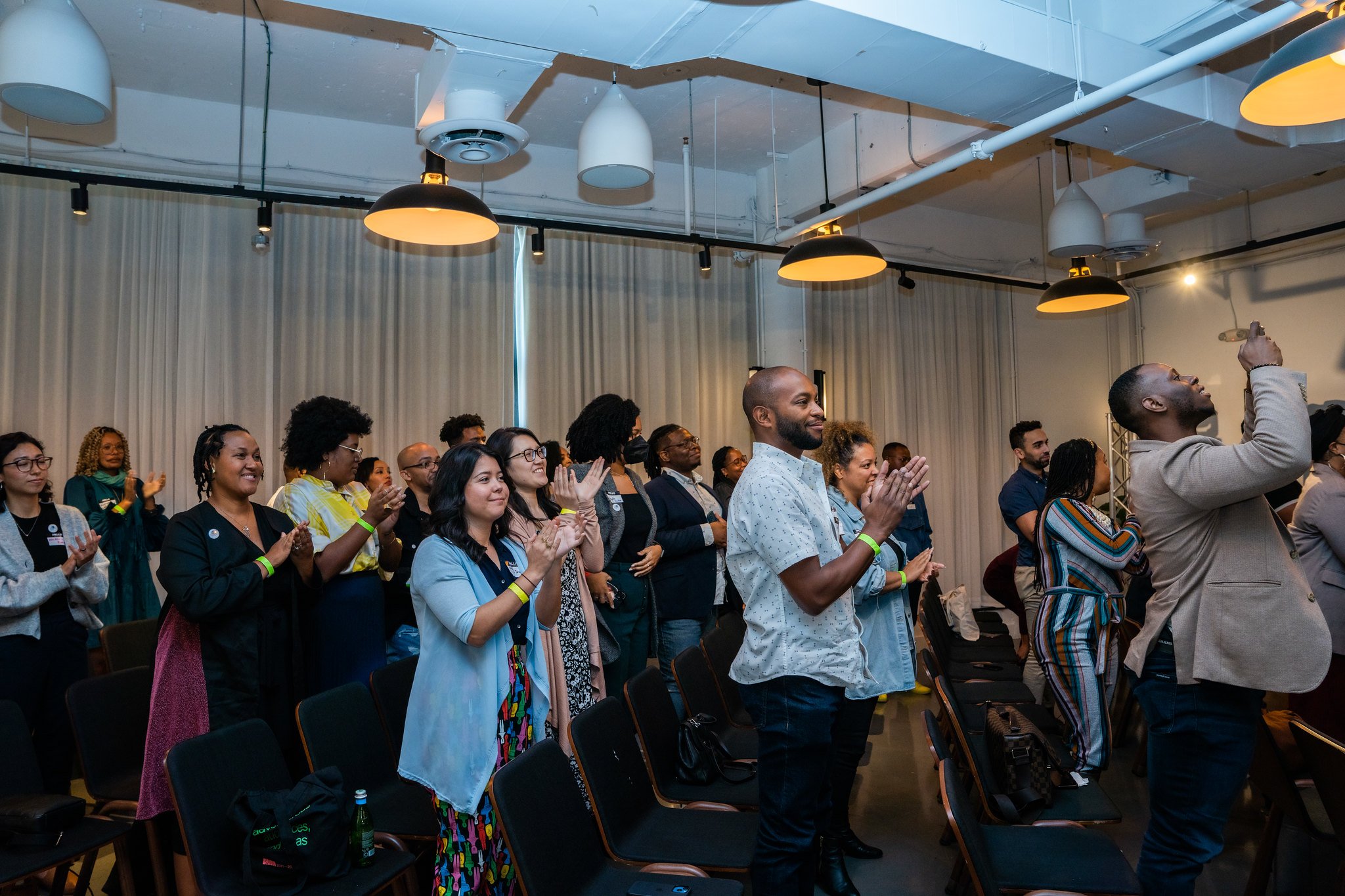
About
Founded in July 2016, the Arts Administrators of Color Network (AAC) is a service organization dedicated to leadership development and community building through the arts. Our mission is to harness the power of artists, arts administrators, and organizations of the global majority to connect and expand BIPOC leadership across the U.S. creative sector. We envision an anti-racist, anti-oppression, human-centered creative sector where intersectional and transformational justice are the norm and most cultural institutions are led by People of the Global Majority.
Since inception, AAC has achieved significant milestones:
Events and Convenings: Hosted over 100 events, growing annual convening attendance from 75 in 2017 to over 500 virtually in 2020, with in-person annual convening averaging 300 attendees.
Professional Development & Community Building: Organized 100+ events engaging 1,000+ participants through workshops, affinity spaces, and networking sessions.
Mentorship Program: Launched a 10-month program, mentoring over 42 individuals with 100% reporting professional growth under mentors of color.
Arts Leaders of Color Emergency Fund: Distributed $200 micro-grants to nearly 1,000 BIPOC artists and administrators affected by COVID-19.
Strategic Growth: Completed inaugural strategic planning in 2022, hired full-time staff for the first time and began transforming the working board to focus on governance and fundraising.
National Presence: Maintains a highly engaged Facebook group (3,500+ members), listserv (over 20,000 readers), and engages our community at numerous national and local convenings across the country.
AAC is a 501(c)3 organization, made possible through generous donations.
Arts Administrators of Color Network’s programs and services are designed to center and support BIPOC (Black, Indigenous, People of Color) and Global Majority-identifying artists and arts administrators. While individuals of all backgrounds are welcome to engage, participation should honor this intention. We do not tolerate discrimination, harassment, or behavior that undermines the safety and integrity of our community.
Mission
The Arts Administrators of Color Network is a support network that harnesses the power of artists, arts administrators, and organizations of people of the global majority to connect and expand BIPOC leadership across the U. S. creative sector.
Vision
We envision an anti-racist, anti-oppression, human-centered creative sector where intersectional and transformational justice are the norm and most cultural institutions are led by People of the Global Majority.


